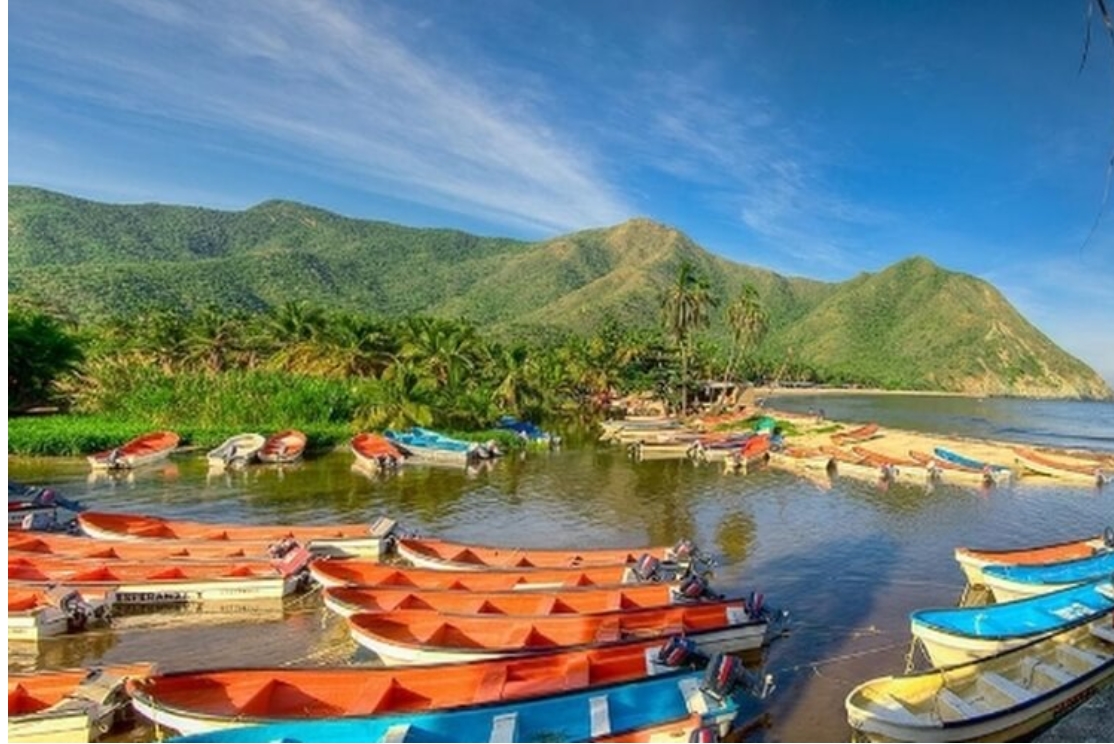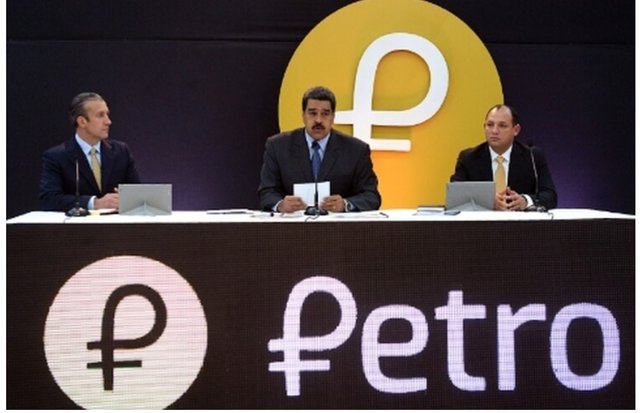El Petro has attracted millions of dollars, and there are no deals, it seems that a major scandal

Choroni is a small coastal town in the north of Venezuela. You can reach it by the only way - according to the old road, preserved since 1920s, winding through the mountainous terrain of the Henry Pittier National Park. This is the first national park of Venezuela, founded in 1937. Choroni, which is home to about five thousand inhabitants, survives due to tourism and fishing.
In these parts of the smartphone - a rare phenomenon. I once asked a local resident - a restaurant worker, whether he is familiar with bitcoin or crypto currency. He replied that a few days ago tourists were wondering if they could pay by bitcoins or El Petro. The waiter learned about these concepts from the broadcasts of the state radio, glorifying the president of the country Maduro, who soon can go down in history as the creator of the "first state crypto currency".
Recently Maduro announced that budget institutions should make payments to El Petro to all employees who want to receive in the crypto currency. Approved payment in this crypto currency in the tourism sector, at major gas stations and for consular services. Maduro said that he wants petrol stations to accept bitcoins and other crypto-currencies. However, paying bitcoins for gasoline in Venezuela will be almost impossible, since 100 liters of fuel costs 100 bolivars ($ 0.00046 or 4 satoshs).
"The reason for this cryptotryk is an attempt to avoid financial sanctions. In reality, if Caracas wanted to trade funds, it would go to the international capital markets. However, last year the Trump administration imposed sanctions prohibiting banks from making deals with the Venezuelan authorities and the state oil company, "the Wall Street Journal said.
This opinion was supported by analysts and commentators, it is not surprising, because the Maduro regime has already brought upon itself a shadow of doubt. For example, Maduro repeatedly said that each El Petro will be provided with a barrel of oil from the Ayakucho No. 1 field. Francisco Minaldi, an expert in energy policy in Latin America, identified several reasons for doubting this statement:
Oil production from the No.1 Ayakucho field is not carried out, and even there are no plans to develop the field. Also, there is no necessary infrastructure, pipelines for transportation of crude oil.
When developing the field, more than 51% should belong to PDVSA (the Venezuelan state oil company), which is currently insolvent and has no funds for investment.
Of the theoretical $ 60 per barrel, operating profit from oil production will be at most $ 5-10 per barrel. Also, it is required to return the initial investment, which is more than $ 4 billion for every 100,000 daily barrels produced. Where does this money come from?
Let's assume that El Petro gives you the right to invest in Ayacucho Field No. 1 and get barrels in ten years. How much are you willing to pay for this right without the risk of an impure game? How much are you willing to pay in Venezuela, the country in which the Constitution establishes that oil reserves can not be sold or transferred to a country whose legislative authorities, recognized by the international community, have declared El Petro an illegal asset.

And indeed, hours after the first sale of the Venezuelan crypto currency, the president of the Finance Committee of the National Assembly, Rafael Guzman, expressed the opinion that this currency is contrary to the Constitution, since the legal currency in the country is the bolivar. "The government is trying to understand if it will be able to get money if there is a shortage of liquidity due to low oil production, whose indicators have fallen due to mistakes in the leadership. But they will face a problem: all investors know that this is a hoax. "
In the Constitution, there are several articles that accurately determine the norms of the national currency and the mechanisms for the formation of new debts. In conclusion, he added that El Petro is a deception tool and an unconstitutional asset.
President Maduro (center) with the vice-president of the Office for the Control of Foreign Assets (UIKA) Tarek El-Ayssami (left) and the Minister of Science, Technology and University Education of Venezuela Ugbel Roa (right
President Maduro said on national television that the government has attracted so many funds that will allow El Petro to enter the ICO TOP 3 ratings ahead of the teams supported by generous venture capital companies. Ten days after the "launch", on March 2, NEM's blockbuster found that 100 million El Petro (PTR) were controlled by one address, and they are now controlled by the same address.
There are a lot of questions surrounding El Petro. How did the authorities attract such capital? Promises to send El Petro investors in a few days? Who is this naive person who will believe this? In fact, El Petro was not launched on February 20. In fact, on February 23, the government admitted that it had not developed smart contracts and did not release tokens. Nevertheless, Maduro continues to triumph over the huge 9-digit number. According to him, the purchase intent with respect to El Petro is extremely large.
But extraordinary statements require extraordinary evidence. None of them was presented. Consequently, the situation with El Petro proves that the currency is as opaque as the entire regime of Maduro in general.
One of the authors of the publication Caracaschronicles.com believes that the figures that Maduro says are nothing more than a psychological trick. This fact also replenishes the long list of mysteries around El Petro. Here is another example: Maduro will take El Petro at an arbitrary rate and exchange for bolivars, that is, for a currency that lost 2,616% in price in 2017